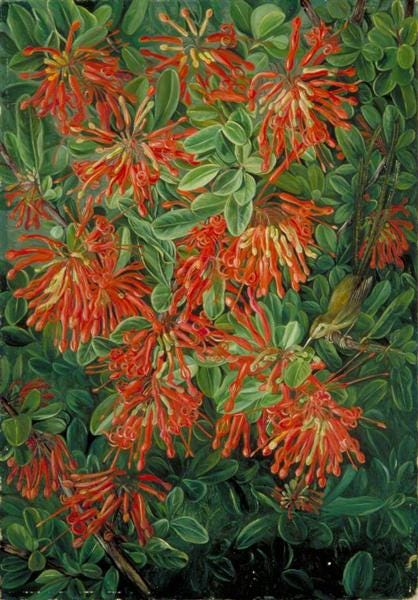
Hi friends,
A quick little post today, perhaps a bit meandering and unfinished.
I have been thinking about labels and how reductive they are. I was writing a whole essay in my head about it. But then I thought to myself, If I sent such a post to a good editor, they would not publish it, because goodness, if ever there were an example of beating a dead horse…
We all already know labels can be stifling.
So then I started thinking about ways that labels have been exciting or even aggrandizing instead. I thought about how much fun it was to tell people I was an archivist (yes, this is the sort of thing I think is fun) when I worked my first library job after college. This despite the fact that technically, lacking an MLIS, I was not an Archivist with a capital A. But “library assistant” didn’t really explain what I was doing — and archivist did. I was thrilled to claim that label when necessary!
I also do like saying I’m a writer or editor or historian or mom or even Catholic. It doesn’t encompass all I do, but it’s a good quick shorthand for people to understand something about me. And it also sounds cool. I mean, to me. I’m sure many people think it sounds boring!
But that does remain all that such labels can be — stifling, aggrandizing, or convenient as a shorthand. They are helpful, but they aren’t all-encompassing — they can’t say it all, and it’s wrong for them to restrict excessively, too.
So, who resists labels?
I thought to myself first of all of the one who, when asked who he was, replied simply and terrifically, “I AM WHO AM.”
We, as image-bearers, might learn something from this. We may be parents, historians, writers, surfers, even “dog moms,” but this shorthand goes only so far toward explaining ourselves — just as while God calls himself our father and truly is this, he is also so much more. A word or even a relationship cannot contain him.
Perhaps, in the image of the One, we thus “are” first and foremost simply in existence. And were loved into it.
Speaking this way of ourselves isn’t very practical, though, since we’re all in the same boat there. “What do you do?” “Oh, I exist!” is a pointless exchange of words. But thinking of ourselves as existing not merely in fact but also as who we essentially are — as image bearers — is a different mind experiment that brings something a little deeper to bear.
I exist as myself in the image and likeness of God.
Let me say it again.
I exist as myself in the image and likeness of God.
So do you.
Next time you use a label for yourself or another, rightly or wrongly, tag this little line on in your head in the end. I am a homemaker who exists as myself in the image and likeness of God. I am an accountant who exists as myself in the image and likeness of God. I am a poor student who exists as myself in the image and likeness of God.
I think if I had thought that way earlier in life, I would’ve saved myself a lot of grief. What do you think?
Warmly,
Dixie



"But thinking of ourselves as existing not merely in fact but also as who we essentially are — as image bearers — is a different mind experiment that brings something a little deeper to bear.
I exist as myself in the image and likeness of God."
Might have to write that last line down and put it up somewhere visible. From high school to college to adulthood, the lack of a defined, positive label—at least in the way I saw those around me supposedly having them—has been a major source of insecurity and sometimes grief. But pinning something down wouldn't capture all the other parts of me, anyway. And neither can it for other people, which is good to remember.
I appreciate this. I recently had a friend push back at my use of the word “disabled” for myself because she said she doesn’t like labels and thinks of people as people. I had to think about why this label is important to me, and yet does not define me. I told her that it’s useful and it helps me when others understand the limitations I have. She appreciated that and said she is learning that she also needs not to erase things that are true about people. I think she’s starting in the right place though, thinking of people as people. And the label of disabled does not fully define me or explain who I am. I like your way of putting it - I am a disabled person who exists as myself in the image and likeness of God.